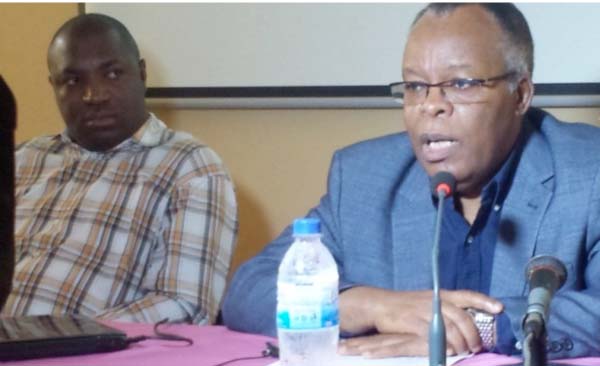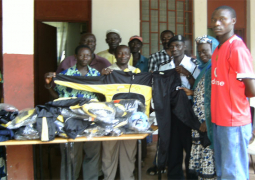
Officials of the Ministry of Health and Social Welfare, in collaboration with the Mental Health Leadership and Advocacy Programme (MHLAP), Thursday concluded a three-day forum on adoption of World Health Organisation guideline on mental health treatment.
The forum, held at NaNA conference hall, was geared towards customising and adopting the WHO Mental Health Gap Action Programme Intervention Guide.
Dawda Samba, country facilitator of MHLAP, said the WHO programme is a guideline for health workers at hospitals, health clinics and primary healthcare facilities in the communities.
He said it is important that mental health patients are taken care of wherever they are and that is why The Gambia government established a psychiatric hospital, Tanka Tanka.
Similarly, the government has provided scholarships to train psychiatric nurses to higher levels but the problem is, “most of the trained ones do not reach out to psychiatric patients in the rural areas”.
“So what we are doing is to develop a treatment guide that the community health nurses, the state enrolled nurses, and the registered nurses and other doctors at communities and other health facilities can use to treat mental health patients,” Mr Samba said.
The WHO tool, Mental Health Gap Action Programme Intervention Guide, is a simplified treatment guideline that many countries have adopted for mental health.
He said the guideline was developed based on research in developing and developed countries in Africa especially sub-Saharan Africa and other middle and low-income countries.
He said that when the guideline is ready for implementation in The Gambia, MHLAP is going to work with the Ministry of Health to print 500 copies for the ministry to distribute within its health facilities.
“Every single health facility will have a mental health treatment guideline,” he said, adding that early next year, they are going to train 20 health workers that will provide extra training to others.
Professor Oye Gureje, director of WHO collaborating centre for training in mental health at the University of Ibadan, Nigeria, said the WHO guide is a tool to be used by nurse specialists to diagnose and treat common mental health conditions.
He said the tool helps primary care providers and nurse specialists to attend to mental health patients by making appropriate diagnosis and proper treatment.
Prof Gureje said The Gambia, as many other African countries, lacks enough mental health specialist, which is why it is very important that nurses are trained to be able to provide required quality care for people with such common health condition.
“This is something that is required in every country; otherwise people with those conditions will continue to suffer unnecessarily when in fact cheap and effective treatment is available,” he said.
According to him, presently there is no single Gambian psychiatrist working in the country.
Bakary Sonko, programme manager for mental health services and prevention of substance abuse, said when the customisation of the document is finalised, it will be accepted as treatment guideline for mental and behavioural disorders in The Gambia.
With the treatment guideline, psychiatric nurses can use it to assess patients who might need the services based on their mental status.



